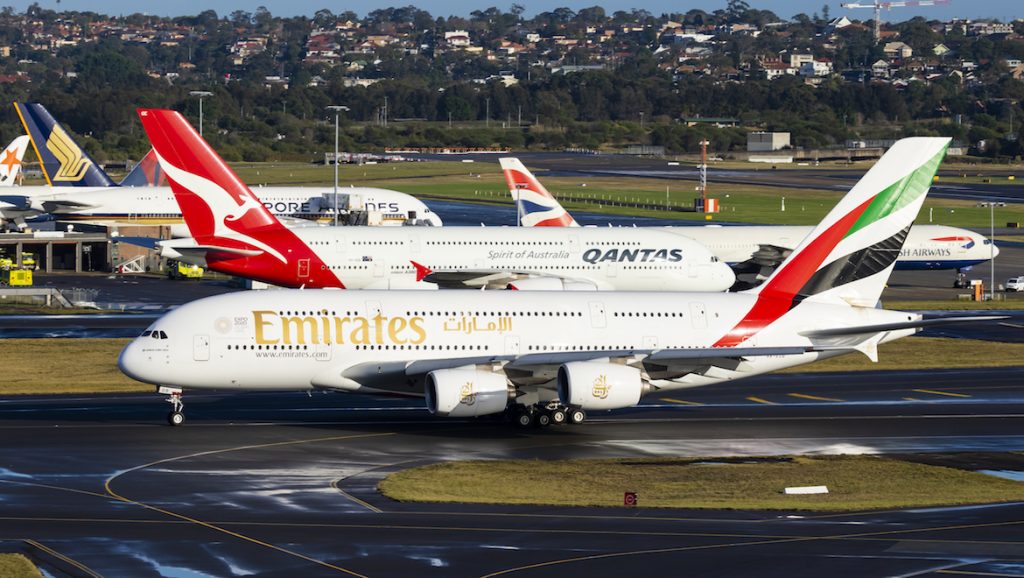
Lawmakers in the US and European Union have finally marked an end to their near 17-year long conflict over aircraft subsidies, and introduced a 5-year suspension of Trump-era import tariffs exacerbated tensions.
The conflict began in 2004 when the US accused the EU of providing unfair subsidies to European planemaker Airbus, which soon saw the EU accuse the US of doing the same for Boeing.
Since then, the World Trade Organisation has launched multiple probes and made dozens of rulings around subsidies provided to both Airbus and Boeing and their effect on market competition.
The decades-long tit-for-tat row came to a head in 2019 when then-US president Donald Trump introduced billions of dollars of tariffs to be imposed on imported goods that included aircraft, a move that was quickly adopted by the EU in return.
Now, both sides have agreed to suspend these tariffs for a period of five years, and have agreed to work collaboratively on a solution to resolve subsidy disputes.
“Grounding the Airbus-Boeing dispute delivers a major confidence boost for EU-US relations,” said EU trade chief Valdis Dombrovskis, following the summit between EU and US leaders.
Meanwhile, US Trade Representative Katherine Tai said the two sides had agreed to clear statements on what support could be given to large civil aircraft producers.
She also insinuated that parties across both sides of the Atlantic would work to counter investments in aircraft by “non-market actors”, specifically referencing China, in light of Chinese aircraft manufacturer COMAC and its C919 aircraft, a direct competitor of the A320neo and B737 MAX.
Tai noted that other political powers outside of the Airbus/Boeing duopoly were investing in their own industries, while the US and EU were too preoccupied with their tit-for-tat war to pay attention.
“The deal … includes a commitment for concrete joint collaboration to confront the threat from China’s ambitions to build an aircraft sector on non-market practices,” she said.
Both the EU and US said they were confident that the ongoing Airbus versus Boeing dispute would end within five years.
Meanwhile both US and EU lawmakers have agreed to continue working productively on easing tensions over subsidies, with both powers confident that the ongoing Airbus/Boeing dispute would end entirely within the next five years.
Both nations have agree to set up a ‘working group’ to ensure this, which would provide financing on market terms, be transparent on R&D funding, avoid support that would harm the other side and co-operate to address “non-market practices” elsewhere.
The UK said it hoped to see a similar deal struck with the US within days.
Calls for an end to the near-two-decade-long dispute have increased in recent months, particularly in light of growing Chinese manufacturing influence and an increase in tariffs, introduced before the onslaught of the pandemic.
In February, the US Trade Representative’s office announced that it had agreed not to impose additional tariffs on imported EU goods, a first step in efforts to dissolve a 17-year dispute over trans-Atlantic aircraft trade.
The European Union acknowledged the decision not to increase current tariffs, and reiterated again for the third time in as many weeks that it was ready to conduct negotiations to resolve trade disputes that have heavily impacted both local aerospace manufacturing sectors.
A spokesman for the EU said at the time: “The EU is ready to engage with the new US administration on the basis of the EU-US agenda for global change we adopted on December 2.
“Our aim is to find solutions to our ongoing trade disputes, including on Airbus/Boeing.”
It came just one day after the USTR similarly stated that it looked forward to working with its European counterparts to resolve the trade disputes.
The EU has long been optimistic that the Biden administration would work with it to improve trans-Atlantic commercial relations, which were further damaged under former president Trump.
European Union ambassador Stavros Lambrinidis stated the matter had gone on for far too long.
Lambrinidis also suggested that by prolonging the dispute, products from China will likely soon begin flooding the global aircraft market, which would pose a threat to both European and US industries.
Brussels had also earlier proposed a six-month suspension of tariffs on both sides to allow for negotiations to take place.
The UK, notably no longer a part of the EU, though still included in the Airbus consortium, also said at that time it was willing to temporarily lift tariffs, perhaps even if the US does not reciprocate, as a gesture of goodwill.










